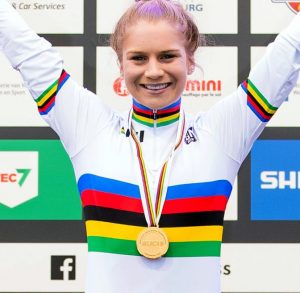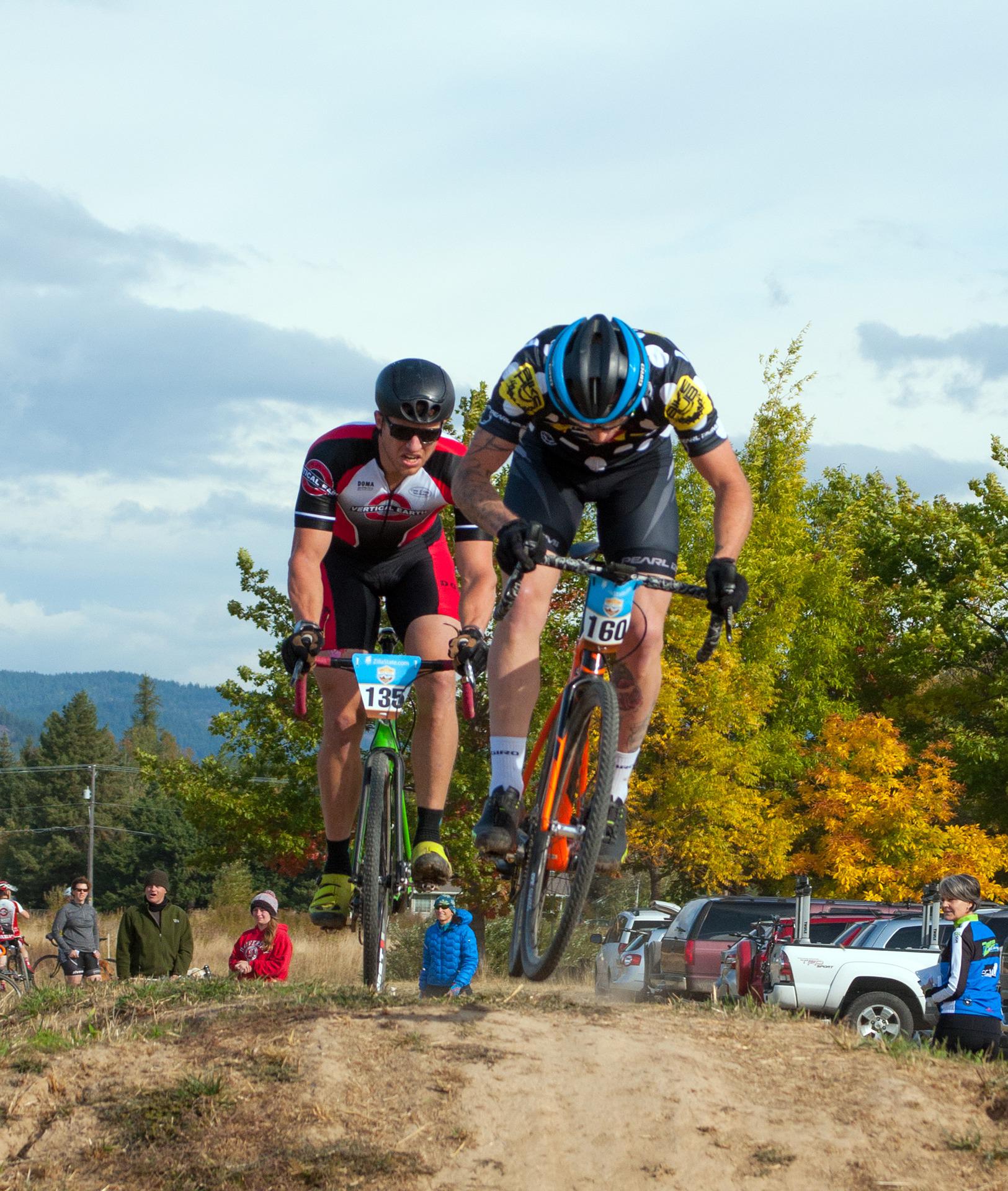In 2021, at the age of 24, Evie Richards became Britain’s first cross-country mountain bike world champion and a year later backed it up with a gold in the commonwealth games.

Evie’s advice to up and coming athletes can be summed up as: don’t do what I did. She is quite vociferous about the mental and physical health issues she faced as a developing athlete.
Evie left school at 16 and joined the British Cycling Academy. She says her periods stopped almost immediately and in five years she only had three menstrual cycles. She was over-training and under-eating. This was considered normal by her coaches and doctors. Evie remembers being at her first world championships that year and thinking how incredible her life was and that she wanted to do this forever. She started to train harder, but that made things worse not better. She started to lose her enjoyment for riding. But all her sacrifices spurred her on to work even harder. She was in a vicious cycle. To all intents and purposes she was successful. She won a silver medal at the commonwealth games in 2018. But she was deeply unhappy and physically on the brink of collapse – her mum described her as a bag of bones. She could only see one way to improve her results – work harder.
Several years on there is a new realisation that many athletes, male and female, suffer from a condition known as RED-S – Relative Energy Deficiency in Sport. It is not considered, by sports scientists, to be a positive contributor to athlete development. Coaches are recognising that it is not normal and are working to balance training with recovery and achieve healthy nutrition.
The explicit competitiveness of sport makes it a popular source of analogies and metaphors for being competitive and effective in business. Maybe it is no coincidence that the evidence shows the majority of entrepreneurs may be suffering the same way Evie did. Entrepreneurs and business owners are 2.6 times more likely to suffer [[burnout]] than their employees. They work harder and longer, give up time with friends and family and drop other hobbies and passions in favour of a singular focus. As a result they start to burn out. They are suffering from Relative Life Deficiency in Business (RLD-B).
This leads to Relative Engagement Deficiency in Business (RED-B). The first signs of RED-B are for entrepreneurs to increase work intensity and work longer hours. Just like Evie training harder as her results got progressively worse.
As a young athlete it was drilled into Evie that you have to make sacrifices to reach the elite level. Evie now believes that the way to sustained success is to take a more balanced approach. She changed her mindset and started riding for fun again. It worked. As a world champion now she believes that enjoying what you do and doing it because you want to is most important. The rest follows from there. She still trains hard, but she also has a life, spends time with friends and balances everything.
In business, it is also time to dispel the myth that burning the candle at both ends is sustainable and that the rewards justify the means. It is time to take a more balanced approach, recognising that being in business should mean more life, not less.
When Evie stopped over-training and under-eating she won gold. Is it time for you to stop over-working and under-living? How much more could you achieve if you did?
To discuss the issues raised in this post, take a minute to pop some time in the diary to have a chat. And if you don’t have time… you really need to… now!
